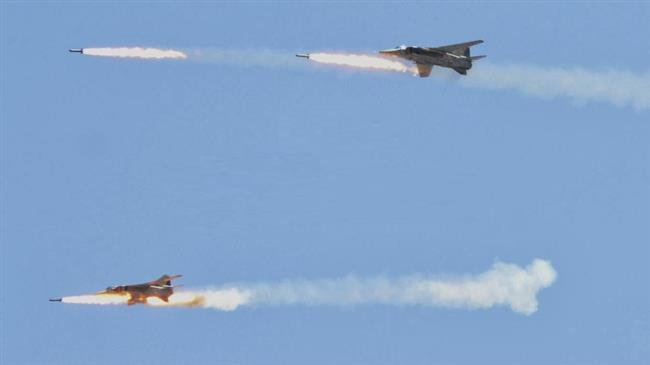Syria launches airstrikes against Daesh positions in Badiya desert: Report

The Syrian military has launched airstrikes against remnants of the Takfiri Daesh terror group and engaged its elements in the central part of the Arab country.
The air raids on Monday targeted terrorists in al-Sukhna, an area between Palmyra and Dayr al-Zawr, west of the Euphrates River, Syria’s al-Watan newspaper reported.
The Syrian Air Force mounted “a number of airstrikes targeting Daesh movements in the eastern Badiya, specifically on one of the dirt roads leading to the town of al-Sukhna and southeast of the town”, al-Watan said, citing a military source.
The Syrian army recaptured Sukhna, the last on the desert road to Dayr al-Zawr city, from Daesh in 2017 as it pushed the militants back across central Syria in an advance along the crucial desert highway from Palmyra to Dayr al-Zawr.
However, some of Daesh terrorists remained in the rugged desert areas around and have carried out attacks on army positions and convoys, according to a Syrian source.
In a separate operation, the Syrian army pounded the positions of the Jabhat Fateh al-Sham Takfiri terrorist group, formerly known as al-Nusra Front, in the northwest of the country.
Army troops fired a barrage of missiles at the hideouts and equipment of terrorists on the outskirts of al-Tah village and Khan Shaykun district in the southern countryside of Idlib province.
Daesh lost its territorial rule in 2017 thanks to large-scale army operations, backed by Iran and Russia.
On the eastern bank on the Euphrates, several hundred Daesh militants remain holed up in the village of Baghouz, in Dayr al-Zawr, which is currently under siege by militants of the US-backed Syrian Democratic Forces (SDF).
Russia and Syria have opened humanitarian corridors out of Baghouz to facilitate the exit of civilians from the area near Jordan.
The two allies have called on the US to end its military presence in Syria so they could finish the evacuation operation in the last Daesh hideout.








